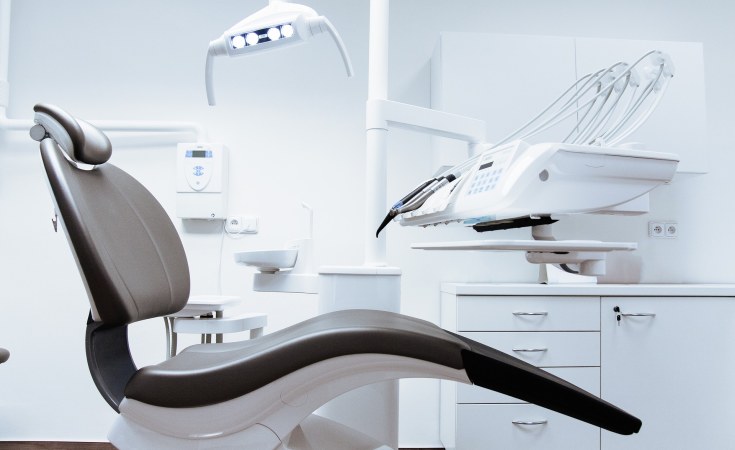In 2015, I had a client with Down Syndrome while working as a dentist in Ekiti State, southwest Nigeria. He came for a root canal treatment. As a competent dentist, I had a hard time treating the patient, because the dental facility did not have some of the equipment needed to treat People with Disabilities (PWDs). Also, I did not know how go about communicating with PWDs about their dental care needs.
PWDs find it extremely difficult to get dental care. For instance,people with autism may find lights and sounds of routine dental examinations unbearable. Also, in San Francisco, waiting time for PWDs requiring dental care may take up to 5 years.
The 2011 World Health Organization's World Disability Report shows that about 15% of the world's population live with a disability. This amounts to a whopping 1.2 billion people – approximately the population of the African continent.
Dental diseases know no boundaries. Prevalence among PWDs is high and even more worrisome, the health system which is meant to be a safe haven for many with special needs however has several barriers which limits access of PWDs to dental care. This should not be so.
According to the Bureau of the Census,1 out of 5 Americans live with a disability, yet California which is the most populated state in America has just two facilities which caters to patients who need dental procedures done under general anesthesia and very few dental clinics are equipped to meet the oral health needs of special needs patient. Also, recent research in Korea shows that people living with disability recorded a higher prevalence of severe dental caries compared to those who are non-disabled.
In Delhi, India, a 2015 oral health assessment conducted on children with disabilities showed that just 5 out of the 414 examined did not require dental intervention. A study published in the BMC Oral Health in 2018, also showed that of the149 children with Autism Spectrum Disorder examined in the province of KwaZulu-Natal Province of South Africa, 127 of them had untreated dental caries.
Despite lack of current oral health data regarding people with disabilities in Nigeria, previous study published in 2007 showed that only 10 out of the 43 individuals with Downs syndrome examined had good oral hygiene. These data shows that the burden of oral health disease in PWDs is a global occurrence.
After my experience of treating the patient with Down Syndrome, I excused myself any time there was a PWD who needed dental care. This made me sad and I became convinced that I needed to improve my knowledge of providing dental care to PWDs.
To ensure that everyone, regardless of perceived ability, age, gender or status, has access to quality dental care, there must be an inclusive health system. These are some ways to achieve that:
First, designing a dental clinic must take into consideration the peculiar needs and challenges of PWDs. These include caring for their physical, mental, emotional and communication needs. For instance, is the dental clinic, wheelchair-enabled? Is there a sign language interpreter for the deaf? It is vital for government, private dental clinics and NGOs to push for adaptation of equitable structures and supports for PWDs.
Second, ensure PWDs are involved in developing dental health policies. As a Senior Atlantic Fellow at the George Washington University, I learnt that, "nothing about us, without us". This implies that programme managers must consult all stakeholders in progamme planning and implementation. A year ago I attended a summit where someone who had a form of disability spoke about her experience in the dental clinic and what could have been done better to improve the care she received. Listening to her was yet another peek into difficulties faced by PWDs when they access dental care.
Third, create networks of diverse professionals who will be committed to improving and providing quality oral healthcare to PWDs despite how challenging it might be. Government, private and NGOs must work together to ensure no PWD is left behind.
Fourth, train and retrain dental surgeons and their assistants. This should be in the form of continuing professional development for these dental healthcare professionals. More recognized postgraduate training in special care dentistry should be available and affordable, especially in developing countries. These trainings should focus on both proper healthcare delivery and disability etiquette. A 2006 Survey on the knowledge of Nigerian dentists concerning treating of children with special needs revealed that only 12.8% of dentists who completed the survey had received postgraduate training in the management of children with disability. When dental professionals do not have the adequate training needed to treat people leaving with disability; this increases the burden of oral health diseases on them and lowers the disability confidence of dental professionals.
Dental care for PWDs should not be seen as charity but as a right. Let's empower PWDs to face each day with confidence and a good smile.
Dr. Adekemi Adeniyan is a dentist and founder of Dentalcare Foundation based in Ekiti, South West Nigeria. She is a Senior Fellow at the Atlantic Fellows For Health Equity at George Washington University, an Associate Fellow of the Royal Commonwealth Society UK and studying for MSc in Medical Leadership online at Lancaster University, as a Commonwealth Scholar. Follow her @PstDrKemi on Twitter.


